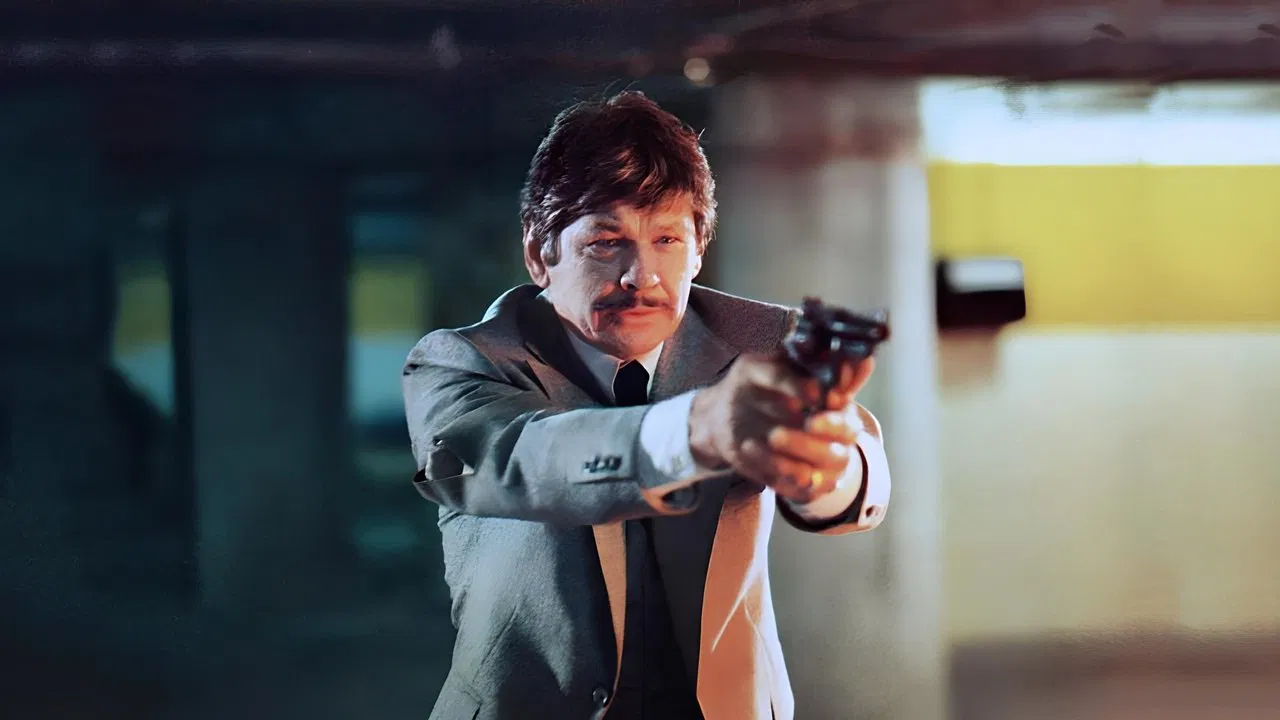

The other side is the good side in this ingenious thriller which also benefits from an extensive use of real locations. The screenplay, however, is somewhat thin on characterization. The narrative is fleshed out with two plots which only come together via the odd telephone call. Nonetheless, the pace is brisk and there is plenty of boom-boom action.Constant changes of locale also keep our attention focused. All in all, the film is reasonably enjoyable for those of us who don't pay too much attention on the dopey plot and are just along for the ride.The ever-reliable Pat Magree presents us with a brief but enjoyably hammy performance. Badel, however, is reduced to stooging. Donald Pleasense is not presented with many opportunities for fine acting either, even though his role is comparatively large.!
... View MoreRiveting political thriller. Bronson plays a Russian intelligence major assigned to stop programmed Stalinist agents from carrying out a possible doomsday plan. Bronson's a member of a reformist wing of the Soviet Communist Party that has replaced hardline Stalinists. However, the earlier doomsday plan remains in effect, and now it's being executed in the US by a renegade Soviet agent (Pleasance). Fortunately for Bronson, the winsome Remick is assigned by Soviets to assist him. Problem is if Pleasance is not stopped he could well set off a nuclear catastrophe.The movie has two elements from earlier Cold War films: The Manchurian Candidate (1962) and Dr. Strangelove (1964). Like Laurence Harvey in the former, agents here are programmed by trigger words to carry out their mission in robotic fashion. At the same time, there's the overhang of a possible doomsday as in Strangelove. Here those elements are skillfully blended to build suspense.What really distinguishes the film, however, is an overall absence of Cold War good guys and bad guys. There's really only one villain, the unreformed Stalinist. Unlike 50's Cold War films, this one treats operatives of both sides strictly as professionals doing their duty without noticeable favorites. One possible exception is Remick. Despite her coy girlish manner, she's also been assigned to eliminate partner Bronson once he succeeds in killing Pleasance. That way, no one will be left to spill the beans about the aborted plan and embarrass the new Soviet regime. So Bronson is to be rewarded by his superiors with death. Maybe that's a good enough reason, but not unarguably so. Meanwhile, Bronson's his usual steely self, while Remick plays up the girlish appearance, leaving us to guess how much of a façade it is. But stealing the show is Tyne Daly as the plain-looking brain behind the American side. Her superiors appear rather addled much of the time, while she deftly maneuvers clues behind her bank of computers. Good touch. Most of the action comes from explosions that blow up real good. I don't know how they did them in 1977, but they're impressive as heck.Anyway, the movie suggests a possible waning of Cold War passions on our side, perhaps because of growing recognition of what a nuclear exchange would entail. Be that as it may, the movie remains a taut and under-rated political thriller, helmed by the masterful Don Siegel.
... View MoreGood movie, good acting, well paced, somewhat rude bad guys-gosh-lots of profoundly disturbing paranoia about Russia but what they hey they are not the boy scouts, and overall an ending better than a TV dinner. Maybe not as scrumptiously delicious as Shakespeare singing Stairway in a hot tub-naughty naughty-but perhaps not as good as Star Wars either.I doubt anyone would turn into a large shrubbery watching this movie, but perhaps they might became a small eastern European compact car, if the film is not watched properly.I would expect that some people have turned into giant walnuts watching this movie, but I doubt that type of things happens much anymore.
... View MoreThis film really isn't that well done, and yet if I happen to flick through the TV channels, and it is on, I find myself getting caught up in it. I guess I like telephone movies. Or better yet, I like movies that don't have cell phones. I know if they remade "Telefon" they would ruin it with cell phones. The key to this movie is that Donald Pleasence does most of his acting in phone booths. A lot of actors of lesser talent might let this restriction hamper their performance, but Pleasence really shines as the bad guy. My favorite DP moment is when we first see him wearing the toupee. I couldn't help but think how clever those Soviet spies were with their disguises. He looks like he is on his way to an Arte Johnson look-alike contest. I'm not sure why he doesn't keep it on through the whole movie. I would have liked to have seen him get strangled while wearing it.
... View More